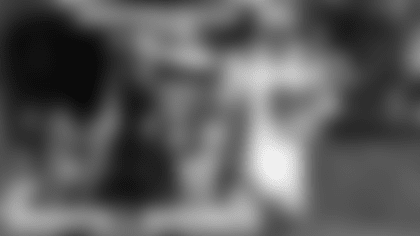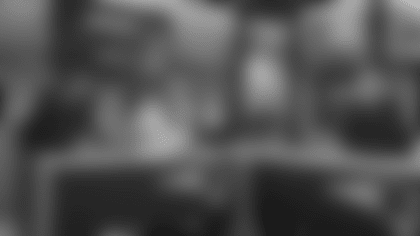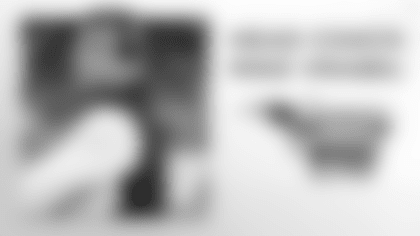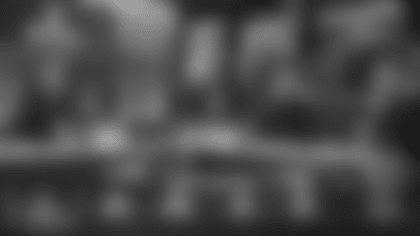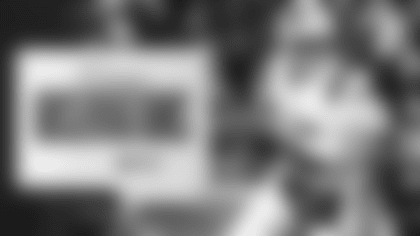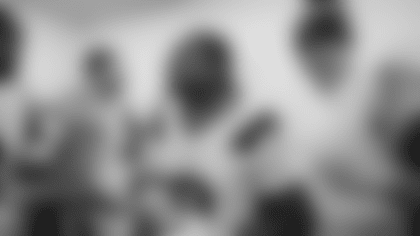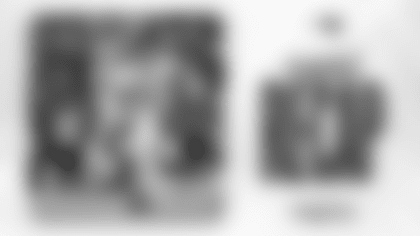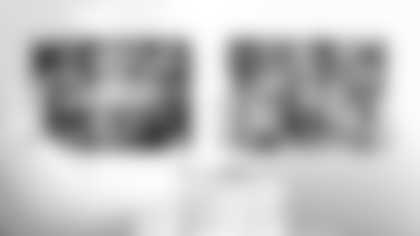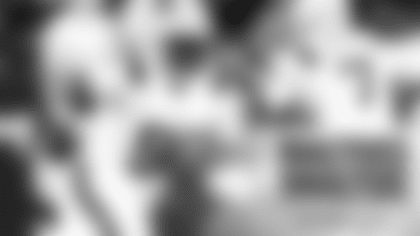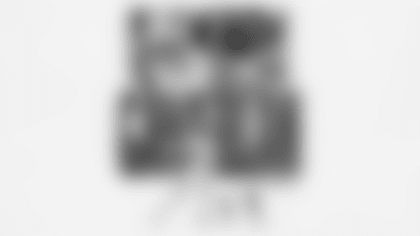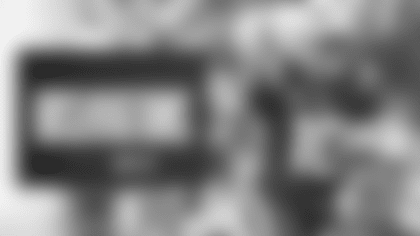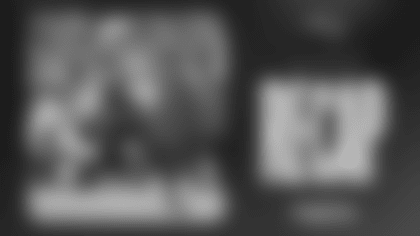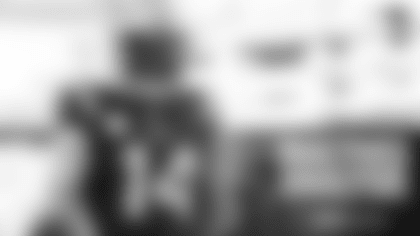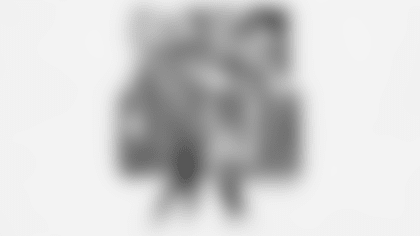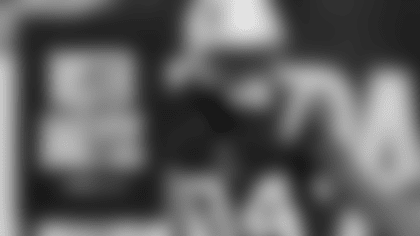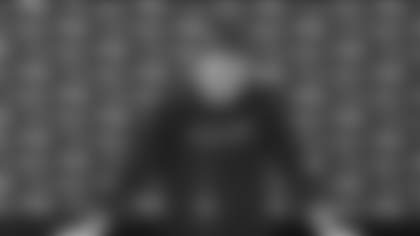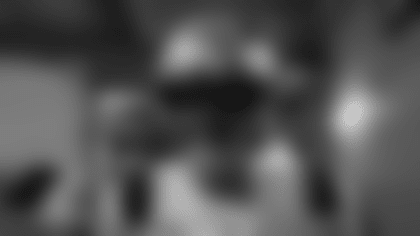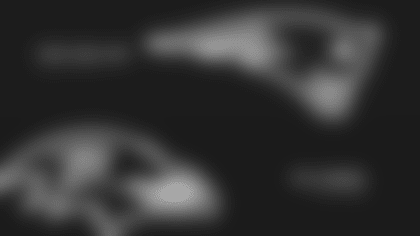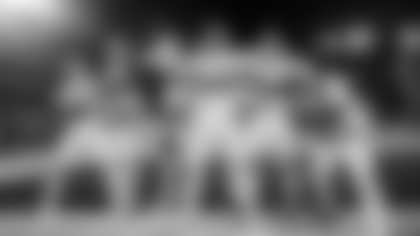ATLANTA — When NFL commissioner Roger Goodell last January took the very public and proactive stance that he considered the catch rule broken and it was finally time to fix it, action by the league's competition committee quickly followed and the long-simmering controversy surrounding that mystifying rule was largely put to rest.
Goodell's opinion carries weight and his words almost always spur action. But it doesn't sound like he's strongly invested in seeing significant changes made to the methods of the NFL's officiating, which have been hotly debated since an egregious no-call against the Los Angeles Rams helped decide the winner of the NFC Championship game 10 days ago in New Orleans.
Publicly admitting for the first time that a mistake was made by the officials in not calling penalties for an obvious pass interference and helmet-to-helmet contact against Rams cornerback Nickell Robey-Coleman, Goodell was willing to at least take that small step in delivering his annual state-of-the-league address here during Super Bowl week. But he covered very little ground otherwise in terms of the potential specifics of if and how NFL officiating might be improved this offseason, and didn't indicate how hard he's willing to push to avoid such a grievous and embarrassing mistake re-occurring in the future.
Goodell clearly was not in his activist mode on Wednesday, and that was no bully pulpit he was speaking from before the assembled media members at the Georgia World Congress Center, where the Super Bowl LIII media center is located.
Rather than set a similar can-do tone to the one he displayed at last year's Super Bowl, when he kick-started the move to clean up and simplify the messy catch rule, Goodell this time sent more of a can't-do message, repeatedly mentioning the complications and potential road blocks to significant changes in officiating and replay procedures.
Promising to have the competition committee "look again at replay'' and whether there should be an expansion of replay challenges was about as far as Goodell was willing to go, and even then he mentioned more reasons for taking no action, which served to give the impression he's fine with the status quo.
"As far as where we can go, we will look again at instant replay,'' Goodell said in the course of the roughly 45-minute session. "There have been a variety of proposals over the last 15-20 years. (But replay) does not include judgment calls. This was a judgment call.
"The other complication is that it was a no call. Our coaches and clubs have been very resistant about having a replay official or somebody in New York throw a flag when there's no flag. They haven't voted for that in the past. It doesn't mean they won't — it's something we're going to put to the competition committee — to see if there's an answer to that. But the reality is that's been (opposed) philosophically by many clubs.''
Asked if his thinking has evolved on the use of replay and its expansion in the quest to fix obvious errors like the one that unfolded in New Orleans, Goodell said little to tip his hand and reveal if he wants to see action taken on this particular hot-button issue. While acknowledging that it's never a good outcome for the league if officiating is the predominant post-game topic, Goodell took the stance that he's something of an impartial observer in the process that ensues when the competition committee takes something under consideration. Even though that has not always been the case in the past, with the catch-rule fix being a prime example of something he clearly lobbied for.
"My role is to make sure the competition committee understands this is critical for us to analyze,'' Goodell said of the league's officiating. "Our rules do evolve. We try to get better. I think the committee will definitely consider this. But what are the solutions and what are the unintended consequences (of taking action)?''
While ESPN reported Wednesday morning that the NFL is expected to consider adopting a rule allowing coaches to challenge judgment calls, with limitations and disincentives for a losing challenge, Goodell certainly gave that initiative no oxygen in what amounts to his most high-profile appearance of every football season. Which makes me believe that proposal has something less than his full endorsement.
One idea that sounds dead on arrival before it's even officially proposed is the addition of an eighth official to the NFL's game-day crews. Some have proposed that official being in a box upstairs with access to all TV angles, in order to correct the obvious mistake in real time. But Goodell doesn't sound too enthusiastic about the plan, with either an added official on the field or upstairs.
"Adding an eighth official is one more human,'' Goodell said, adding that he did not see such a move as the "answer'' to improved officiating, because it will not eliminate all mistakes. "One more human that will make mistakes like the rest of us."
Even in the specific case of adding helmet-to-helmet contact penalties or non-calls of that foul to the list of plays that can be reviewed — all in the name of player safety — Goodell surprisingly didn't sound motivated to lead on that front with the competition committee.
"I'm not going to advise a solution on helmet to helmet, that's what our committee is for,'' he said, adding that he believes the game is already safer because of how players and coaches adjusted to that new rule in 2018. "I don't think the game has ever been officiated at this level. It's extraordinary."
If the commissioner is not leaning forward in the effort to eradicate the gaps in the officiating system that produced the debacle in New Orleans, I'm doubtful anything of real significance will be changed or tweaked this offseason. If so, the league has likely missed out on capitalizing on the potential tipping point moment the Saints-Rams game provided. Saying only of the non-call "That's a play we want to have called,'' Goodell has that much in common with football fans almost everywhere. Now let's see if he backs up those words with actions.
If there are no rule changes, Goodell said he'd be comfortable with the status quo, "If we go through the process of fully evaluating (improvements). That's how we operate.''
But even in finally admitting he can feel the pain of the Saints and their aggrieved fans over the injustice of the situation, Goodell didn't seem to understand why so many people have been waiting for him to address the mistake, and offer some sort of plan for improvement going forward. In that respect, on Wednesday he only partly lanced the boil that has developed since late in the NFC title game.
He made no public comments on the matter before Wednesday, he said, because "We addressed this immediately after the game. The coach (the Saints' Sean Payton) announced the conversation and the fact that this play should have been called. That's our process.''
It's a process that needs some work and a few improvements, just like the replay system. But unless Goodell gets fully on board and lends the power of his backing to the effort for change, I'm skeptical anything meaningful unfolds. And that would be the wrong call once again for the NFL.




